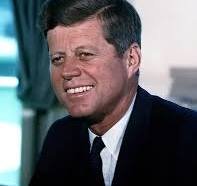Brought Down by a Smile
I’ve been watching presidential debates since the beginning of presidential debates: since Vice President Richard Nixon was out-cooled by Senator John F. Kennedy. Indeed, I don’t believe I have missed any of the 36, by my count, televised debates between or among the major presidential candidates in the United States.
And, over lo these many decades, we have learned—and various and sundry presidential-debate coaches have learned—that certain basic demeanors and moves tend to be effective in these debates:
Being “cool,” to begin with—cool in 77-Sunset-Strip terms: confident, reasonably attractive, comfortable-on-TV. Kennedy was that kind of cool. Pushy, stiff, unlovely Nixon was not. Bill Clinton was cooler in this sense than George W. Bush or Bob Dole. Maybe devil-may-care Donald Trump, TV star, had seemed cooler in some awful, sexist sense than careful, thoughtful Hillary Clinton (though she did get more votes).
But, at least as important is being “cool”—not “hot”—in Marshall McLuhan terms: kind of laid back, unflappable, not jumping out of the screen at the viewer. Ronald Reagan had that kind of cool. He seemed relaxed and comfortable. He could say aggressive, highly partisan things in a calm voice. Same with Barack Obama, who was highly aware of the danger of a Black man seeming angry.
Humor, of course, goes far in these debates as in life. Perhaps the classic example was Reagan’s deflection of the age issue: “I am not going to exploit my opponent’s age and inexperience.”
It also is useful, of course, to avoid saying anything, even by mistake, that can be easily mocked. No, Gerald Ford should not have somehow proclaimed, in 1976: “There is no Soviet domination of Eastern Europe.”
And it’s a fine idea not just to seize opportunities to express empathy but also not to miss obvious opportunities to display human sentiments. A question on the death penalty to Michael Dukakis—in a 1988 debate—began: “If Kitty Dukakis,” the candidate’s wife, “were raped and murdered…” Not a good idea to answer that question, as Dukakis did, without acknowledging the horror of the hypothetical.
On Tuesday evening, Kamala Harris did what neither Hillary Clinton nor Joe Biden was able to do. She got all of above right.
In particular, Harris’s million-dollar smile—as she listened to her split-screened opponent sputter and rant—was not just winning and did not just evidence a sense of humor but was cool in both senses:
That smile was attractive without being flashy.
It allowed her to criticize, even mock her opponent without having to succumb to nasty rhetoric.
Instead of having to jump out of the screen to grab her audience, her smile enabled Harris to stay back and let the audience come to her, find her, discover her, come to its own realizations about what she was thinking.
And her smile was, without being overly explicit, remarkably expressive. It was capable of communicating—unaggressively—sentiments ranging from bemusement to disdain to, almost, pity: “look what he’s reduced to now.”
And that smile gently directed viewers themselves to focus on the foolishness, the clownishness, the inanity, of the words coming out of the ancient, angry, lip-less, almost-foaming mouth on the left side of the screen.
And Donald Trump was, that evening, a McLuhan nightmare—completely unable to restrain himself, to stay back, to be in any sense cool. His only mode in this debate seemed full-on Chicken Little.
Trump can be funny. Sometimes, he manages something of a twinkle to leaven his fury. Tuesday evening, he was humorless.
Trump is always spouting, but here it was hard to miss the fact that he was spouting. The constant, repeated, outsized lies and shameless boasts seemed particularly naked, out in the open—hard even for the MAGA faithful to miss.
We watched Trump settle dutifully and fully into—to borrow a familiar image— the role of angry, get-off-my lawn, old man. We watched him pass from uncool to unhinged: "In Springfield, they're eating the dogs, the people that came in, they're eating the cats"—his “no-Soviet-domination-of-Eastern-Europe” moment.
Look, Donald Trump, has never, ever seemed the sort of candidate a Republican strategist would have designed. Yet, clearly, he possesses some sort of Big-Man, Pied-Piper, populist, shaman-like, stick-it-to-them magic that is hard for strategists and for us, the “them,” to understand.
The faithful-est of the Trump faithful will undoubtedly keep the faith. JD Vance will continue looking for evidence of a cat sandwich in Ohio. But the old Trump act certainly seemed grating and tired Tuesday evening.
And Kamala Harris—something of an accidental candidate—revealed herself on Tuesday evening as the anti-Trump we hadn’t realized we needed—unbig, unmale, unangry yet entirely unwilling to succumb to the bullshit. She made it clear that she found Donald not only dangerous but amusing—almost pitiable in his floundering. The Big Man brought down by a smile.
And the former president kept swallowing Harris’s bait. He got caught. She reeled him in.
The stakes in this election remain extraordinarily high. We must continue to donate and to work. But I think this fish is fried. I think Donald Trump is done.




